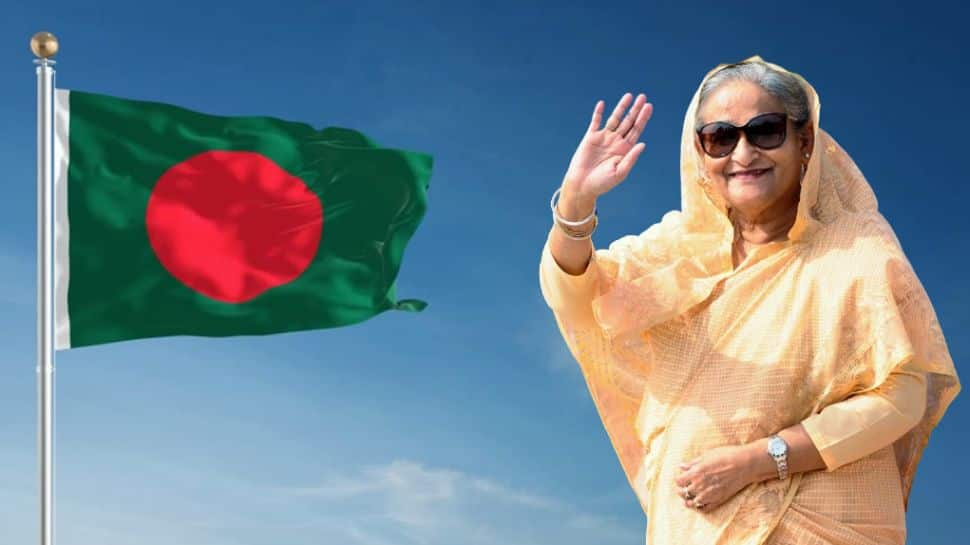Top Stories
Sheikh Hasina Criticizes Bangladesh Interim Government from India

Former Bangladeshi Prime Minister Sheikh Hasina has publicly criticized the interim government led by Nobel laureate Muhammad Yunus, accusing it of fostering “violent and extremist” policies that jeopardize the longstanding relationship between Bangladesh and India. This statement emerged during her time in India, where she has been living in self-imposed exile since August 2024.
In a written interview with the Hindustan Times, Hasina expressed her gratitude towards the Indian people, stating, “I am deeply grateful to the Indian people for providing me with a safe haven” after her government was ousted last year. Her remarks underscore the significance of India as a refuge during a tumultuous period in her political life.
Concerns Over Extremism and Bilateral Relations
Hasina’s comments reflect her concerns about the current administration’s alleged connections to extremism. She claimed that Yunus’s government has been facilitating the rise of extremist elements, which poses a substantial threat to the diplomatic ties between Dhaka and New Delhi. The former Prime Minister emphasized that the historical friendship between the two nations must not be compromised by the actions of the interim government.
The relationship between Bangladesh and India has been characterized by mutual cooperation and support in various sectors, including trade, security, and cultural exchange. However, Hasina’s statements highlight a potential shift in this dynamic, raising questions about how Yunus’s policies may influence future interactions.
Hasina’s tenure as Prime Minister was marked by significant development initiatives and efforts to strengthen ties with India. Her departure from power in 2024 has led to a period of uncertainty in Bangladesh’s political landscape. As she continues to voice her concerns from abroad, the implications of her statements on bilateral relations will likely be closely monitored by political analysts and diplomats.
The Path Forward for Bangladesh and India
The ongoing situation in Bangladesh remains fluid, with the interim government facing scrutiny over its governance and approach to national security. Hasina’s call for a reevaluation of these policies may resonate with various sectors of Bangladeshi society that value the historical partnership with India.
As the international community observes these developments, the focus will likely remain on how both governments navigate this complex political environment. The future of Bangladesh-India relations could hinge on the actions and policies of the current administration and the potential return of Hasina to the political forefront.
In conclusion, Sheikh Hasina’s remarks encapsulate a critical moment in the evolving narrative of Bangladesh’s governance and its relationship with India. The responses from both the interim government and the Indian authorities will be pivotal in shaping the path forward for these neighboring nations.
-

 World4 months ago
World4 months agoSBI Announces QIP Floor Price at ₹811.05 Per Share
-

 Lifestyle4 months ago
Lifestyle4 months agoCept Unveils ₹3.1 Crore Urban Mobility Plan for Sustainable Growth
-

 Science3 months ago
Science3 months agoNew Blood Group Discovered in South Indian Woman at Rotary Centre
-

 World4 months ago
World4 months agoTorrential Rains Cause Flash Flooding in New York and New Jersey
-

 Sports3 months ago
Sports3 months agoBroad Advocates for Bowling Change Ahead of Final Test Against India
-

 Top Stories4 months ago
Top Stories4 months agoKonkani Cultural Organisation to Host Pearl Jubilee in Abu Dhabi
-

 Science4 months ago
Science4 months agoNothing Headphone 1 Review: A Bold Contender in Audio Design
-

 Top Stories4 months ago
Top Stories4 months agoAir India Crash Investigation Highlights Boeing Fuel Switch Concerns
-

 Sports3 months ago
Sports3 months agoCristian Totti Retires at 19: Pressure of Fame Takes Toll
-

 Business4 months ago
Business4 months agoIndian Stock Market Rebounds: Sensex and Nifty Rise After Four-Day Decline
-

 Politics4 months ago
Politics4 months agoAbandoned Doberman Finds New Home After Journey to Prague
-

 Top Stories4 months ago
Top Stories4 months agoPatna Bank Manager Abhishek Varun Found Dead in Well









